Publications
Articles, publications, books, tools and multimedia features from the U.S. Institute of Peace provide the latest news, analysis, research findings, practitioner guides and reports, all related to the conflict zones and issues that are at the center of the Institute’s work to prevent and reduce violent conflict.
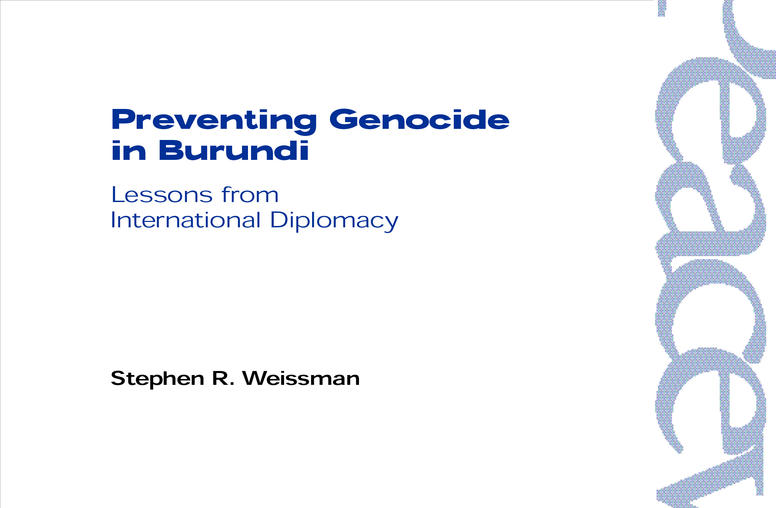
Preventing Genocide in Burundi: Lessons from International Diplomacy
Since 1993, interethnic violence between the 15 to 20 percent Tutsi minority and the 80 to 85 percent Hutu majority in Burundi has taken an estimated 150,000 lives. An examination of the international response to the crisis furnishes valuable lessons for peacemaking in Burundi and other areas of genocidal conflict.
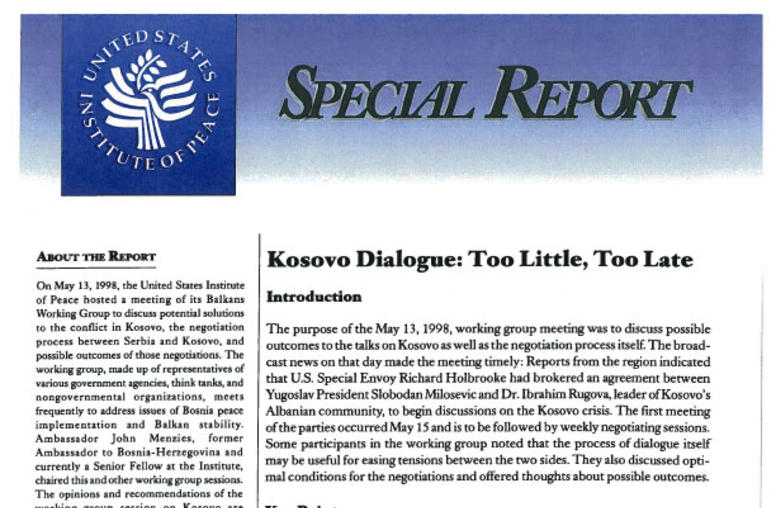
Kosovo Dialogue: Too Little, Too Late
The United States Institute of Peace hosted a meeting of its Balkans Working Group to discuss potential solutions to the conflict in Kosovo, the negotiation process between Serbia and Kosovo, and possible outcomes of those negotiations.
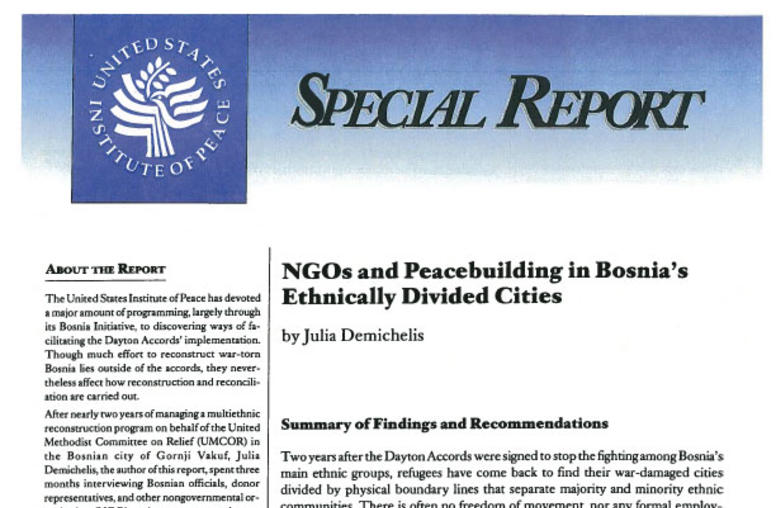
NGOs and Peacebuilding in Bosnia's Ethnically Divided Cities
This report begins with an overview of the political boundaries in many of Bosnia's municipalities that have prevented postconflict reconstruction and reconciliation. The next section describes effective and ineffective strategies among aid donors and humanitarian-relief NGOs operating in these locales, followed by a case study of successful grassroots programs in the city of Gornji Vakuf. The report concludes with recommendations for NGOs and donor organizations.
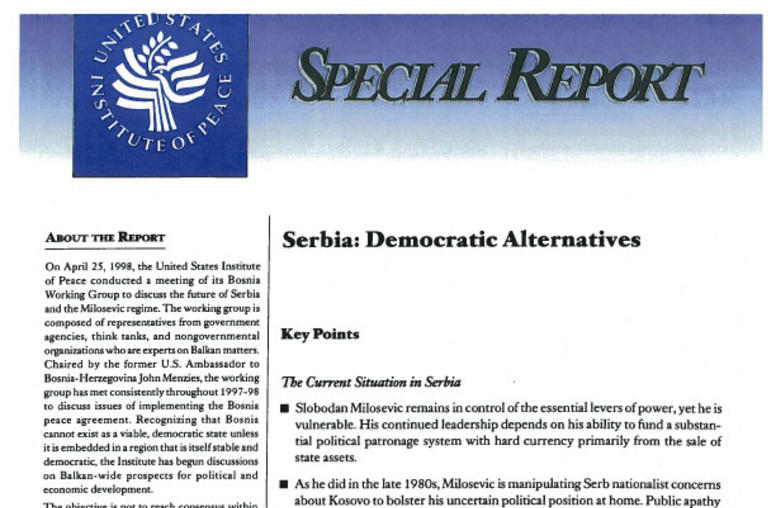
Serbia: Democratic Alternatives
On April 25, 1998, the United States Institute of Peace conducted a meeting of its Bosnia Working Group to discuss the future of Serbia and the Milosevic regime. The Institute's objective is not to reach consensus within the group, but to explore issues and options.
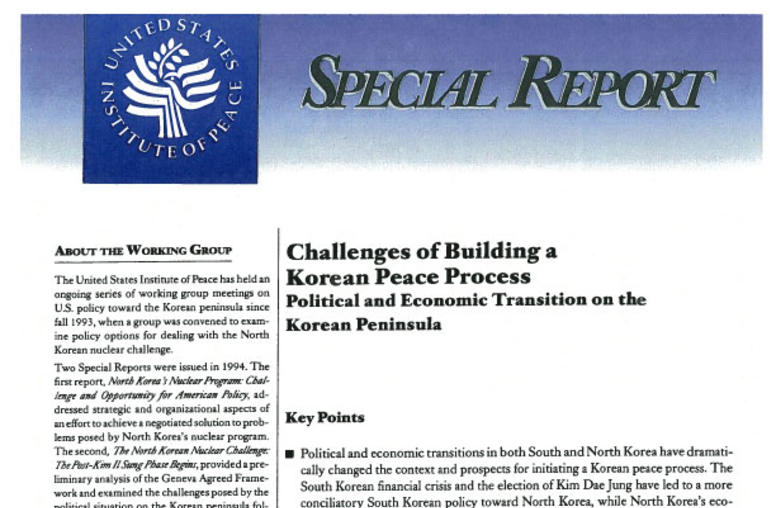
Challenges of Building a Korean Peace Process: Political and Economic Transition on the Korean Peninsula
This Special Report, authored by Program Officer Scott Snyder, is based on meetings of the working group that focused on political, economic, and security developments in North and South Korea.
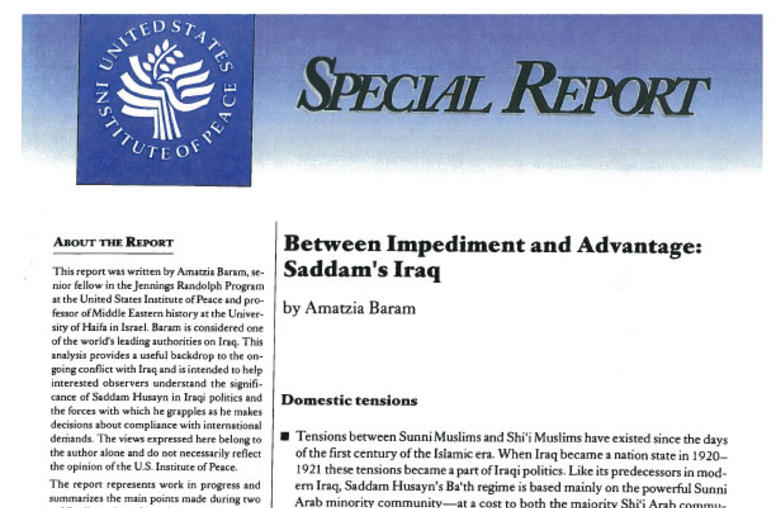
Between Impediment and Advantage: Saddam's Iraq
The report represents work in progress and summarizes the main points made during two public discussions about the nature of domestic politics in Iraq under Saddam. This analysis provides a useful backdrop to the ongoing conflict with Iraq and is intended to help interested observers understand the significance of Saddam Hussain in Iraqi politics and the forces with which he grapples as he makes decisions about compliance with international demands.
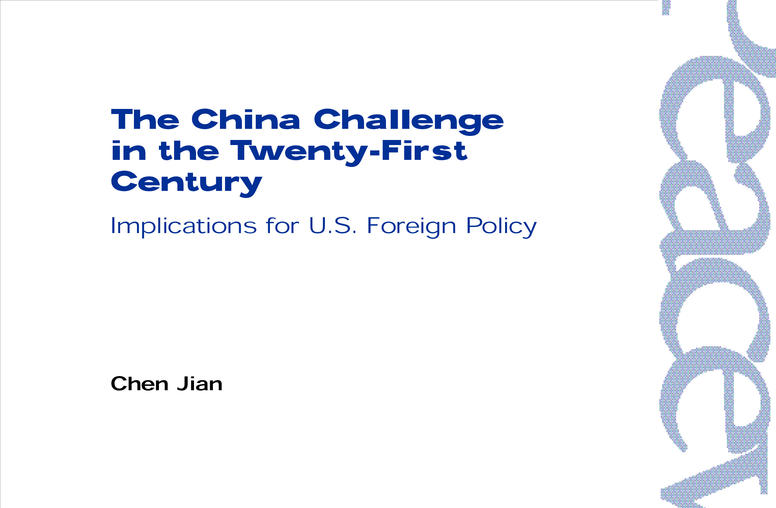
The China Challenge in the Twenty-First Century: Implications for U.S. Foreign Policy
Despite Asia's current financial crisis, China's rapid economic growth raises the question of whether or not it will emerge as a dominant regional power, or even a hegemonic world power, in the twenty-first century. For many in the West and in China's neighboring countries, this prospect is very troublesome.
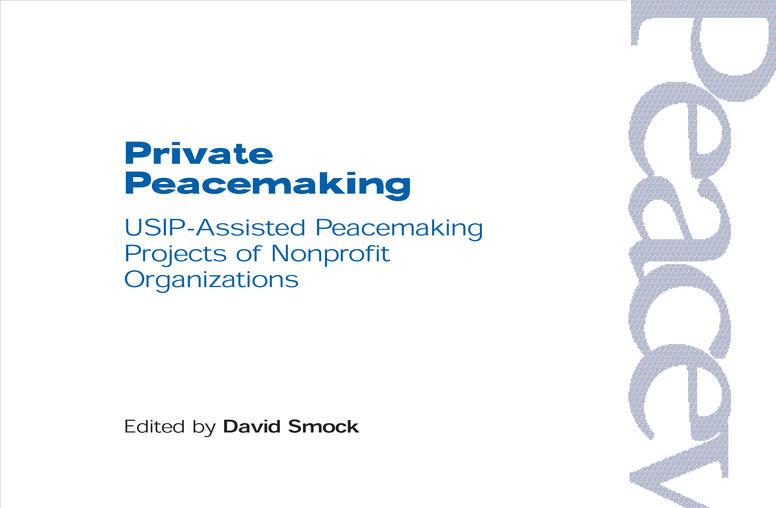
Private Peacemaking: USIP-Assisted Peacemaking Projects of Nonprofit Organizations
The peacemaking activities described here have been targeted on conflicts in East Timor, the Middle East, Georgia and South Ossetia, the Transcaucasus, Sri Lanka, Northern Ireland, Algeria, Kosovo, and Bosnia. These projects have generally been pathbreaking in that new techniques and approaches to peacemaking have been employed. Several have generated valuable experiences with wide application, dramatically demonstrating how effective private organizations can be in promoting peace
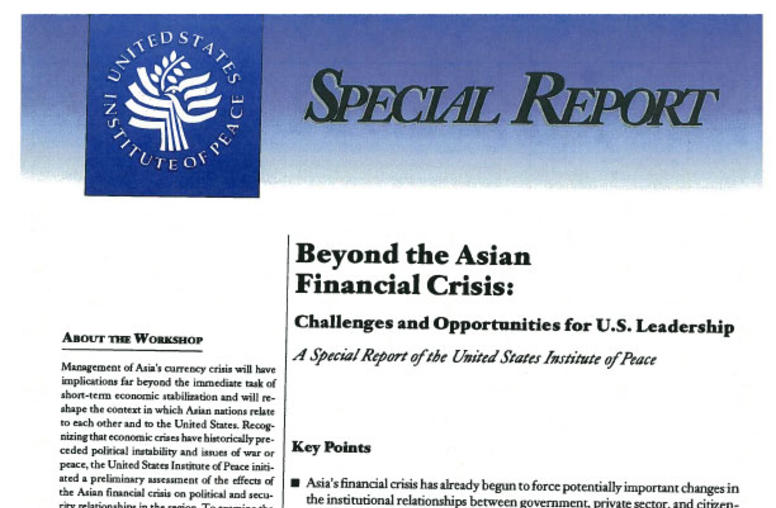
Beyond The Asian Financial Crisis: Challenges and Opportunities for U.S. Leadership
Following two decades of rapid growth, social change, and industrialization, the countries of the East Asian region are experiencing their first regionwide economic crisis. The immediate economic causes of Asia's financial crisis--especially unsustainable short-term foreign debt incurred by the private sector and exposed by the sudden devaluation of overvalued local currencies--have been identified. The challenges for U.S. leadership in response to the region's current financial crisis are to...
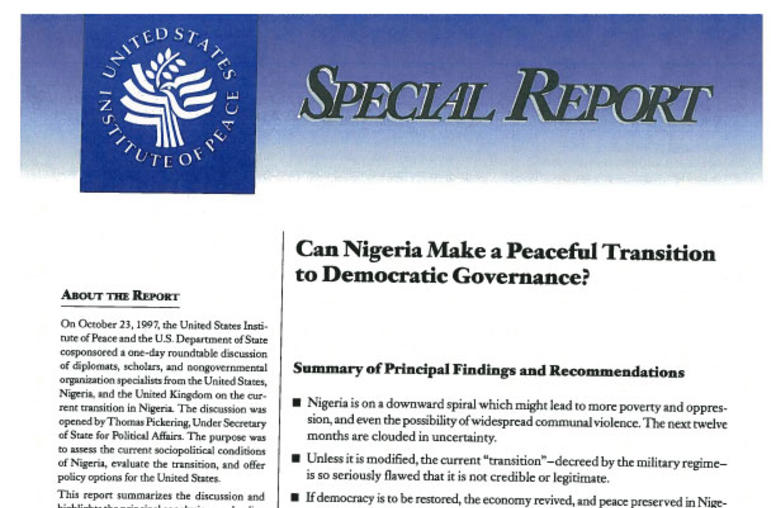
Can Nigeria Make a Peaceful Transition to Democratic Governance?
On October 23, 1997, the United States Institute of Peace and the U.S. Department of State cosponsored a one-day roundtable discussion of diplomats, scholars, and nongovernmental organization specialists from the United States, Nigeria, and the United Kingdom on the current transition in Nigeria. The purpose was to assess the current sociopolitical conditions of Nigeria, evaluate the transition, and offer policy options for the United States.